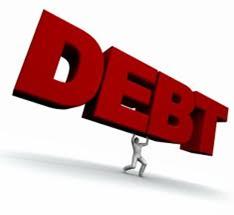
- Set up a payment plan
Being organised with your repayments isn’t just about tidying up your own books; it’s about demonstrating to your creditors that you are a cooperative debtor, willing to commit to a figure that you can reasonably pay. If you’re in serious trouble, always consider turning to the Money Advice and Budgeting Service (MABS) for advice. They can help you to negotiate with your creditors and set up payment systems that are acceptable to both parties: satisfactory for the creditor and realistic for you. MABS exists to help people who are seeking to help themselves and who actively want to clear their debts, so if you need help, they are more than willing to help you to help yourself. With the Abhaile Scheme your professional fees for legal and insolvency costs ( Personal Insolvency Practitioners ) are paid by the government. For more information – www.backontrack.ie or https://www.mabs.ie/en/abhaile/ - Stop borrowing more money
This may seem like a basic one, but I’m not just talking here about applying for a loan. If you are in a hole the first thing you have got to do is stop digging ! Using a credit card to service debt, then paying it late each month, or not paying it regularly at all will incur huge interest and fee penalties. Using the credit limits can make sense but only if you have a plan to repay the used credit limit. It can also make sense to renegotiate loans over a longer period thereby reducing the monthly repayment while all the time aware of the additional interest it will incur. All lenders will now offer moratoria or interest only repayments while we have the virus crisis. Lenders are listening. - Know what you’re paying
Not every savings account offers the same interest rates – and nor does every credit card. If you have more than one – and many do – pay off the card with the highest interest rate first, so that you are shortening the time during which the highest rate of debt can build. Revisit ALL your debts and find out the interest rates and put them in order…. - Do more than the bare minimum
Start thinking of minimum required monthly repayments as the low bar: is that all you want to reach? Aim higher! If you have a loan that you pay back in part each month, start paying off when circumstances permit a greater figure than the amount owed. You will settle the debt more quickly – but you will also save yourself the interest you would have paid had you had the loan for its full lifetime. Just beware: some debts come with penalties if repaid early, although these are not typically prohibitive. - Reduce your outgoings
Do you really need that latté ? How about your gym membership? Or when was the last time you actually used your car ? Many of the things we feel we “can’t” live without are, in fact, very easily replaceable. Once the virus crisis is over, if you live on a – realistically, of course – regularly serviced public transport route, consider ditching your car, along with your insurance, motor tax, petrol… The bus fare won’t seem so sky high any more. - Consolidate your debt
If you have a number of disparate, unsecured loans floating around, consider applying for a debt consolidation loan. Such a loan will allow you to pay one payment that covers all your debt – and the best part is that the interest rates are often lower than on typical loans. Sadly they are difficult to obtain but in the present circumstances lenders may be more flexible.
So, there you have it: a lot of practicality and a little tough love – they’ll take you far ! Good luck with your money management and stay safe.
